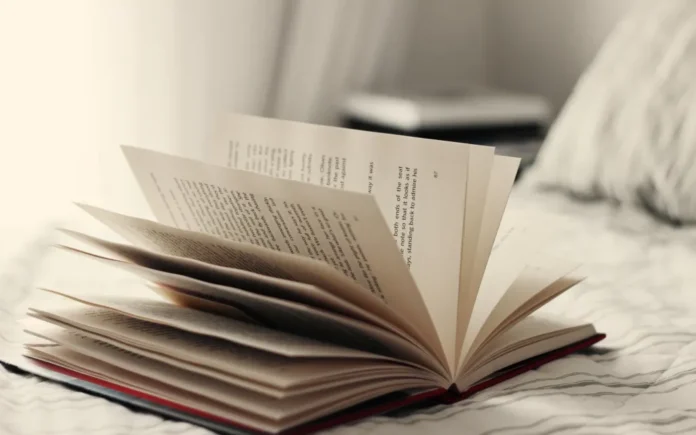The Poet’s Dilemma: When Self-Editing Falls Short
As poets, we often find ourselves in a peculiar predicament. We craft our verses with care, pouring our emotions and experiences onto the page. But when it comes time to refine our work, we hit a wall. Why? Because we’re too close to our own creations. It’s like trying to see the back of your own head without a mirror – nearly impossible!
Self-editing is a crucial skill, but it has its limitations. We might overlook repetitive phrases, miss opportunities for stronger imagery, or fail to see where our rhythm falters. This is where a fresh pair of eyes becomes invaluable.
What Exactly Does a Poetry Editor Do?
A poetry editor is more than just a grammar checker or a spell-corrector. They’re your partner in poetic excellence. Their role encompasses:
- Providing objective feedback on the strength of your imagery and metaphors
- Identifying areas where your rhythm or meter can be improved
- Suggesting ways to enhance the emotional impact of your verses
- Helping you refine your unique poetic voice
- Ensuring consistency in tone and style throughout your work
Think of a poetry editor as a skilled gardener. They don’t plant the seeds of your creativity – that’s all you. But they do help prune, shape, and nurture your poetic garden, allowing your words to bloom to their fullest potential.
The Benefits of Professional Editing for Poets
Collaborating with a professional poetry editor can be transformative for your craft. Here’s how:
- Enhanced Clarity: An editor helps distill your message, ensuring your intended meaning shines through.
- Improved Technique: Learn advanced poetic techniques and refine your existing skills.
- Constructive Criticism: Receive honest, professional feedback to help you grow as a poet.
- Increased Confidence: With polished work, you’ll feel more self-assured in sharing your poetry.
- Better Reception: Edited poems often resonate more strongly with readers and publishers alike.
Finding the Right Poetry Editor for Your Style
Not all poetry editors are created equal. Finding the right match for your style is crucial. Consider:
- Their experience with your preferred poetic forms
- Their understanding of your thematic interests
- Their editing philosophy – do they aim to preserve your voice or reshape it?
- Their communication style – how do they provide feedback?
How to Prepare Your Work for a Poetry Editor
Before sending your precious verses off to an editor, take these steps:
- Self-edit first: Do your best to refine your work before seeking professional help.
- Compile your questions: Note any specific areas where you’d like feedback.
- Provide context: Share your inspiration or intent behind the poem if relevant.
- Be open-minded: Prepare yourself to receive constructive criticism.
The Collaborative Process: Working with Your Editor
Editing is a dance, not a dictation. Here’s how to make the most of your collaboration:
- Communicate clearly: Express your goals and concerns openly.
- Ask questions: If you don’t understand a suggestion, seek clarification.
- Be receptive: Consider all feedback, even if you don’t agree with everything.
- Iterate: Don’t be afraid to go through multiple rounds of edits.
Learning from Feedback: Growing as a Poet
Every edit is a learning opportunity. Pay attention to:
- Recurring issues in your work that the editor points out
- New techniques or approaches they suggest
- The reasoning behind their edits
Over time, you’ll internalize these lessons, becoming a stronger poet with each edited piece.
The Impact of Editing on Publication Success
Let’s face it: the poetry world is competitive. Well-edited work stands out. Many publishers can spot the difference between raw and refined poetry at a glance. By investing in editing, you’re not just improving your current work – you’re increasing your chances of future publications.
Cost vs. Value: Investing in Your Poetic Craft
“But isn’t hiring an editor expensive?” you might ask. Consider it an investment in your art. The cost of editing can vary widely, but the value it brings to your poetry is immeasurable. Weigh the expense against the potential benefits:
- Improved chances of publication
- Enhanced reputation in the poetry community
- Accelerated growth as a poet
Remember, you’re not just paying for edits – you’re gaining education, insight, and a professional polish that can elevate your entire body of work.
When to Seek a Poetry Editor’s Help
While there’s no hard and fast rule, consider seeking an editor when:
- You’re preparing a collection for publication
- You’re submitting to high-profile journals or contests
- You feel you’ve hit a plateau in your development as a poet
- You’re exploring a new poetic form or style
- You want to refine your signature pieces
Don’t wait until you think your work is perfect – that’s like waiting to get in shape before going to the gym. The editing process itself is part of perfecting your craft.
The Ethics of Poetry Editing: Maintaining Your Voice
A good poetry editor enhances your voice; they don’t override it. Ethical editing involves:
- Respecting your artistic vision
- Suggesting changes, not demanding them
- Explaining the reasoning behind edits
- Encouraging you to make informed decisions about your work
Your poem should still be recognizably yours after editing – just a more polished version of your unique voice.
Beyond Editing: Additional Services Poetry Editors Offer
Many poetry editors wear multiple hats. They might also provide:
- Mentorship and coaching
- Advice on publishing and promoting your work
- Workshops and writing exercises
- Feedback on your poetry collection as a whole
Don’t hesitate to ask about additional services that could further your poetic journey.
Success Stories: Poets Who Thrived with Editorial Guidance
From Emily Dickinson’s correspondence with Thomas Wentworth Higginson to Sylvia Plath’s work with Ted Hughes, history is full of poets who benefited from editorial relationships. Modern success stories abound too, with countless poets crediting their editors for helping them achieve publication and recognition.
The Future of Poetry Editing in the Digital Age
As technology evolves, so does the world of poetry editing. Online platforms are making it easier than ever to connect with editors globally. AI tools are emerging as assistants in the editing process, though they’re unlikely to replace the nuanced understanding of a human editor anytime soon.
The future of poetry editing is likely to be a blend of traditional wisdom and cutting-edge technology, offering poets more resources than ever to refine their craft.

















